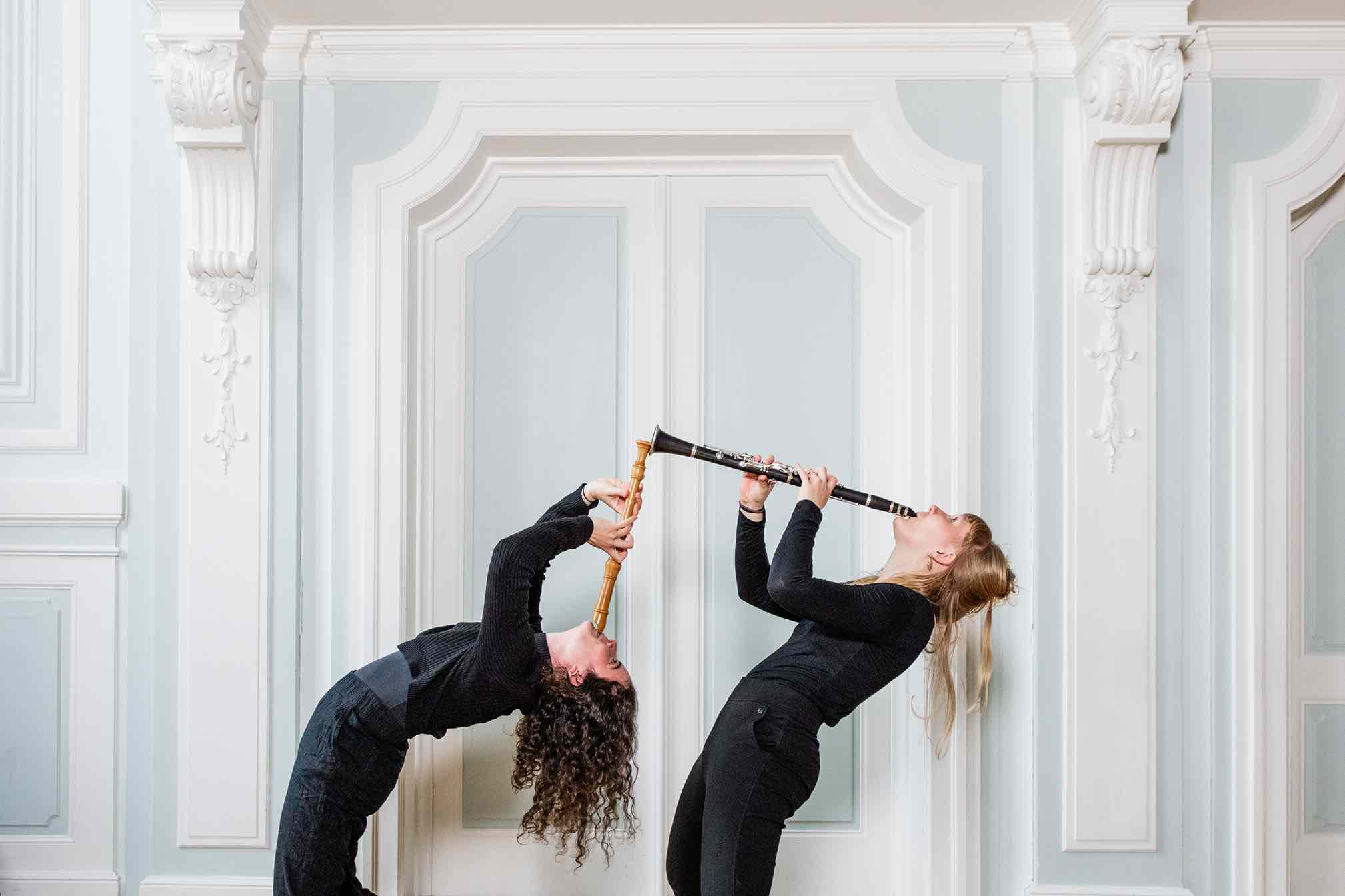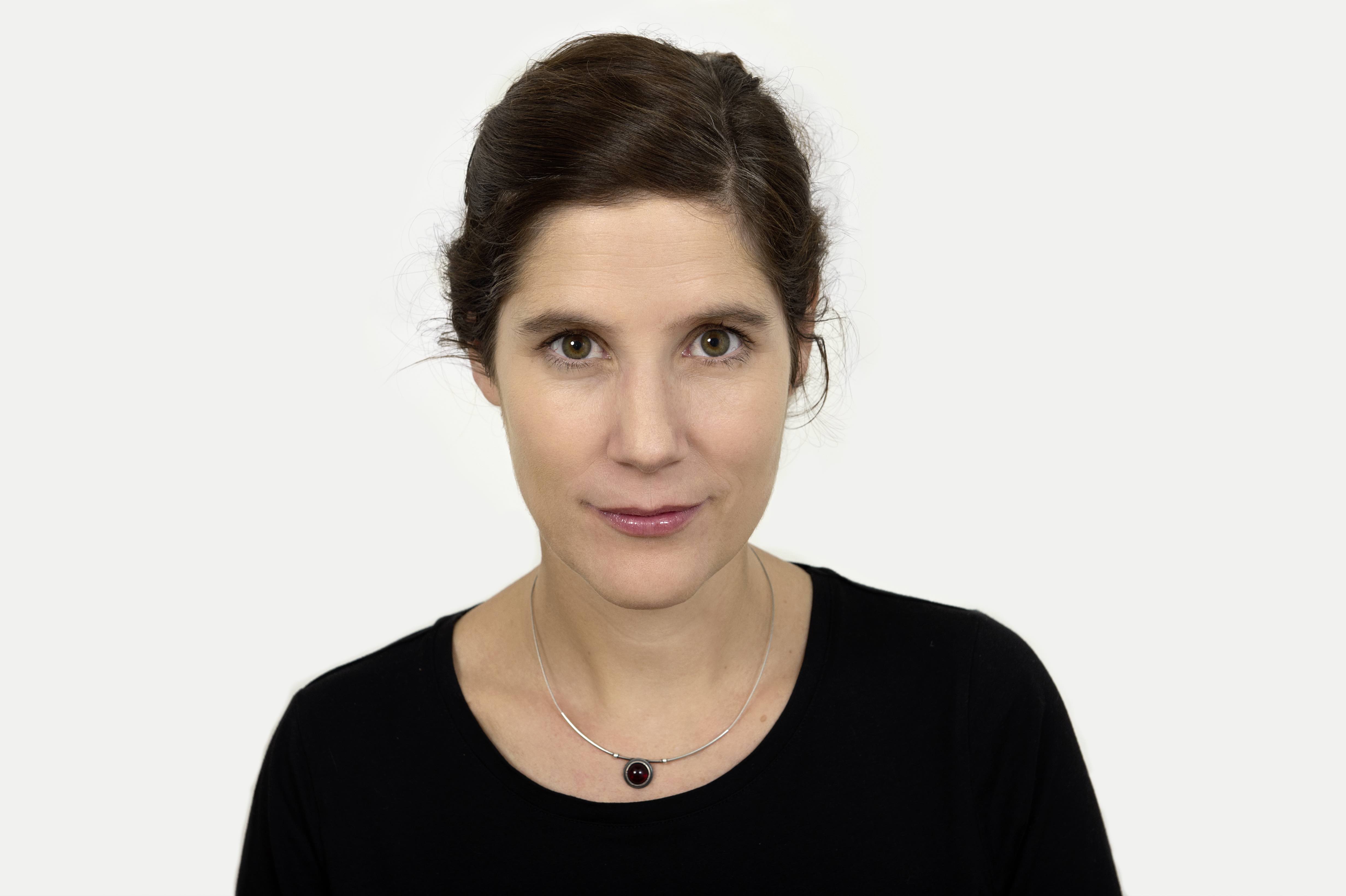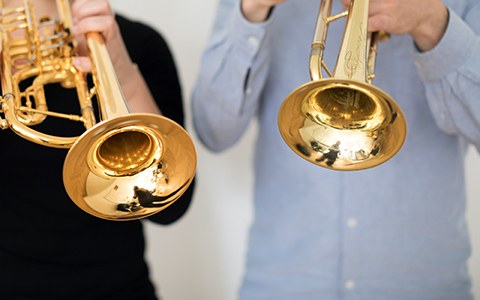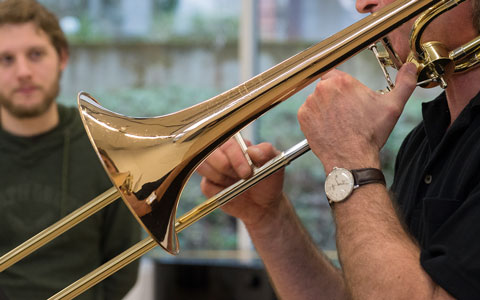MA Music Pedagogy | Instrument / Voice
Hochschule für Musik Basel
Institut Klassik | Is your career goal to combine your artistic career with a career in music education? Then this master's programme in Basel is an excellent choice.

- Dual objective: to achieve musical and artistic stage readiness and to learn the craft of musical communication.
- Relating artistic and educational aspects in a meaningful way
- Pedagogical training for teaching at educational institutions or as a freelancer: The for employment at music schools required degree is the MA in Music Pedagogy (instrumental/vocal).
Steckbrief
Zukunftsaussichten
Learning outcomes
The FHNW Master of Arts in Music Pedagogy with an Instrumental/Vocal Major focuses on nurturing the students’ artistic identity and providing them with the skills needed to share their musical expertise with different audiences. Students learn to engage with music at a deeper and more complex level and encouraged to develop their own unique ‘voice’. They also acquire the pedagogical-didactic skills needed to provide professional jazz tuition at all levels.
The study programme pursues two objectives:
Professional performer
Students acquire the basics necessary to perform in public and to independently plan and deliver performances to a professional standard. The study programme also focuses on the development of the students’ own musical practice.
Teaching music
At the same time, students acquire the skills necessary to teach and communicate music to others. This programme enables students to give instrumental and/or vocal tuition on an individual or group basis to schoolchildren of all levels: music and upper secondary schools, and on a private basis. The Master of Arts in Music Pedagogy with an Instrumental/Vocal Major also offers a range of minor subjects, providing students with the opportunity to specialise further and gain an additional qualification.
Study variations
Students who already have been awarded a Master of Arts in Musical Performance with an instrumental/vocal major (or Specialized Performance with a Solo Performance major), are able to graduate the pedagogic education on their instrument/voice and chose an alternative artistic Major (possible study programmes may be found under “Structure”). The entrance exam of the artistic major is then held under the given conditions of the respective study programme.
Communicating (with) music
Target audience
The FHNW Master of Arts in Music Pedagogy with an Instrumental/Vocal Major is aimed at musicians who:
- enjoy and are interested in sharing their musical expertise with people of all ages and in different settings;
- would like to add a teaching qualification to their existing professional music qualifications.
Career prospects
The FHNW Master of Arts in Music Pedagogy with an Instrumental/Vocal Major prepares students for a wide range of careers. In addition to private or institutional tuition at music schools, upper-secondary schools, music societies and the like, graduates are qualified to work in many other fields, such as music and cultural mediation in concert halls and opera houses. Nearly all music schools in Switzerland now require prospective teaching staff to have a Master of Arts in Music Pedagogy (or an equivalent qualification).
Aufbau und Inhalte
The BA and MA degree programs at the Basel Academy of Music are based on modules.
The legally binding structure provides an initial guide to the content and weighting of the subjects on the degree programme.
The detailed content and modalities of the individual subjects can be found in the module descriptions.
The study regulations come into force together with the study and examination regulations of the Basel Academy of Music FHNW and form the legal framework.
Vertiefungen
International
Leitung und Dozierende

Prof. Annekatrin Klein
Leiterin MA Musikpädagogik instrumental/vokal / diverse Lehrveranstaltungen

Musikpädagogische Fächer
Dozierende der pädagogischen Fächer

Teaching staff
Our internationally renowned teaching staff
to teaching staff
Voraussetzungen, Zulassung, Eignungsabklärung
Admission criteria
In order to enter the FHNW Master of Arts in Music Pedagogy programme with the Major instrumental/vocal, applicants must be awarded a Bachelor in Music/Music and Movement or equivalent as well as they have to have passed the entrance exam and were offered a free place at the Academy (limited places). Applicants who have submitted all the necessary registration documents in time and have passed the first round of the entrance exam will be invited to play a live audition.
For further information on the admission criteria, please see the Study regulations of the Master of Arts FHNW in Music Pedagogy.
Admission criteria for internal applicants
The admission criteria for internal applicants are regulated separately. Please refer to the information on the Intranet Inside regarding Weiterführung des Studiums.
Language skills
We expect students to have very good German language skills at the beginning of the studies. Students who are not German native speakers must present at least a B1 German language certificate according to the Common European Framework of Reference for Languages (CEFR) at the beginning of the studies.
This certificate must be complete, i.e. all modules (reading, listening, writing, speaking) have been tested separately and passed at least at level B1 overall. Only certificates that have been certified with the ALTE-Q-Mark seal of approval (e.g. the B1 certificate of the Goethe-Institut or the telc certificate) are accepted. The required certificate B1 must be submitted with the confirmation of admission but not later than Mai 31.
Exceptions will be decided upon by the head of degree programme.
Admission / Entrance exam Study variations for second Master
Organisatorisches
Projects / Ensembles
At Hochschule für Musik Basel, students have the opportunity to participate in various project and ensemble programmes.
To the overview of the recurring offers.
Quicklinks
- Welcome: A brief overview
- Studying in Switzerland
- Tuition fees & Financing
- Scholarship
- Module descriptions
